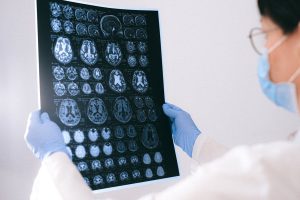
In a groundbreaking milestone for healthcare, all 107 stroke centres in England are now leveraging artificial intelligence (AI) technology to improve stroke care outcomes. This development is a testament to the power of technology in saving lives and enhancing recovery for thousands of stroke patients every year.
AI’s Impact on Stroke Care
According to Darrien Bold, head of elective care at NHS England, the integration of AI in stroke care has already shown promising results. Early analysis reveals a remarkable achievement: AI has reduced the time from stroke diagnosis to treatment by over 60 minutes. This adds emphasis and avoids monotony.. This is a critical advancement, as every minute saved during a stroke significantly reduces the risk of long-term disability and increases the chances of survival.
Moreover, AI has tripled the number of patients recovering with minimal or no disability. The percentage of stroke patients achieving functional independence has jumped from 16% to an impressive 48%, underscoring the transformative role AI is playing in improving patient outcomes.
How AI is Changing Stroke Treatment
The primary advantage of AI lies in its ability to rapidly process and interpret brain scans. Technologies such as the Brainomix e-Stroke system and the RapidAI software are providing clinicians with real-time insights. These systems enable doctors to make faster, more informed decisions about the most appropriate treatments for their patients, such as whether surgery or clot-removal medication is required.
For example, Brainomix, which was endorsed by the National Institute of Health and Care Excellence (NICE) in February 2024, has been recognised for its ability to enhance clinical decision-making. Similarly, RapidAI is helping clinicians save lives by delivering quick and accurate analysis of brain images, ensuring treatment is administered promptly and effectively.
Looking Ahead
The success of AI in stroke care is a beacon of hope for the future of healthcare. However, it is only the beginning. The continued adoption and integration of AI across other areas of medicine could further enhance patient outcomes and improve operational efficiency.
As Bold aptly stated, “We must continue to be flexible and innovative, and to prioritise the quality and safety of care.” This commitment to leveraging technology for better healthcare outcomes is a model for global health systems to emulate.
The integration of AI in stroke care highlights the importance of innovation in saving lives and improving patient outcomes. As we celebrate these advancements, it’s crucial for policymakers, clinicians, and tech developers to continue collaborating to unlock the full potential of AI in healthcare.
